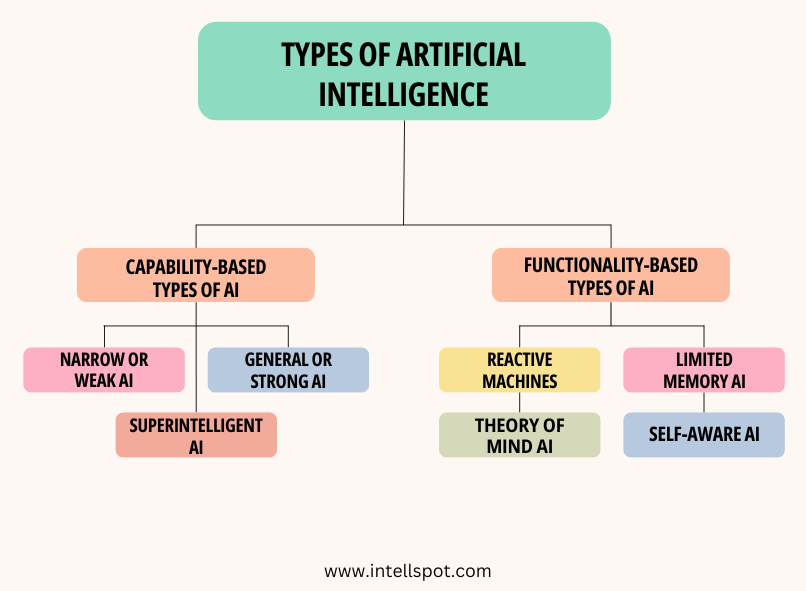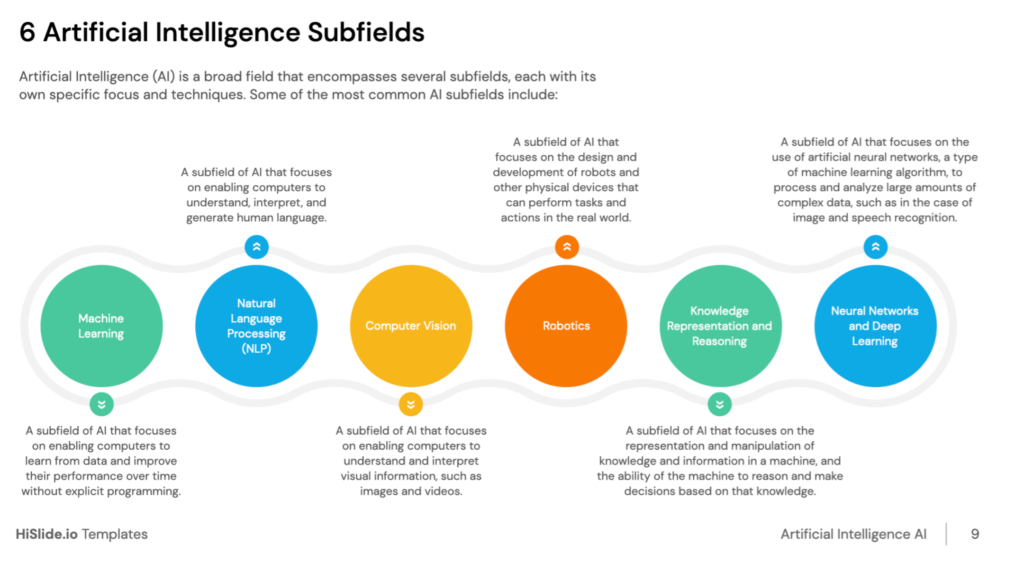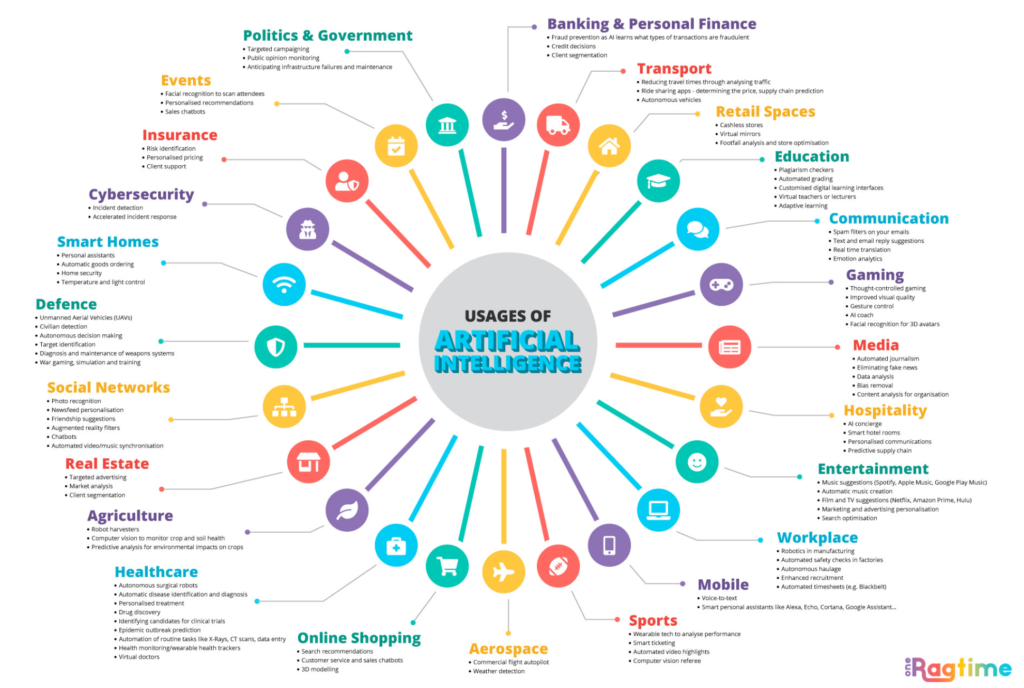ICS4U – Artificial Intelligence
ICS3U - Review of AI Concepts
Last year in ICS3U, you took a look at some basic ideas involving artificial intelligence. In particular you should be familiar with the following topics before proceeding with this lesson.
What is AI?
Stong vs Weak AI
The Turing Test
Types of Artificial Intelligence

AI can generally be classified into the following types:
- Capability Based
- Narrow (Weak AI) – Designed to complete very specific actions and unable to independently learn
- General (Strong AI) – AI designed to learn, think, and perform at similar levels to humans
- Super Intelligent – AI that is able to surpass the knowledge and capabilities of humans
- Functionality Based
- Reactive Machines – AI that is capable of responding to external data in real time, but unable to build memory or store future data
- Limited Memory – AI that can store knowledge and use it to learn and train for future tasks
- Theory of Mind – AI that can sense and respond to human emotions, plus perform the tasks of limited memory machines
- Self – Aware – AI that can recognize others emotions, plus has sense of self and human level intelligencce.
Subfields of Artificial Intelligence
There are many different sub fields within the main umbrella of artificial intelligence. Here is a quick view of the main ones

Applications of AI
Almost every industry is starting to implement some form of Artificial Intelligence.

Ethics and Artificial Intelligence
Ethics vs Laws
Ethics and laws of different forms of rules by which humans are expected to behave themselves in our society. They are aimed at making life better for everyone. Each are aimed at modifying our behaviour in order promote decent people across all levels of society. Ethics are built up by society over time, and learned from one generation to the next. Laws are designed by governments and could change over time. No one actually enforces us to behave in ethical ways. They are instilled upon us by our family, education, social interactions. There are often very few sanctions for behaving in unethical ways, but breaking the law leads to direct punishment from government.
Computer Ethics
Computer ethics are a set of moral standards that govern the use of computers. It is societies views about the proper use of both hardware and software.
Some generally accepted ethics principles of computer use are:
You should NOT
- Use a computer to harm other people
- Interfere with other peoples computer work
- Snoop around in other people’s computer files
- Use a computer to steal
- Use or copy proprietary software without permission
- Think about social consequences of the program you writing or the system you are designing
- Use a computer in ways that ensure consideration and respect for fellow humans
Ethical Issues related to Artificial Intelligence
Here are some issues that need to be discussed from an ethical level as artificial intelligence keeps progressing
- Unemployment – What happens after the end of Jobs?
- Inequality – How do we distribute wealth created by machines?
- Humanity – How do machines affect our behavior and interaction?
- Artificial Stupidity – How can we guard against mistakes?
- Racism and Bias – How do you eliminate bias in training data?
- Security – How do we keep AI safe from adversaries?
- Evil Geniuses – How do we protect against unintended consequences?
- Singularity – How do we stay in Control of a complex intelligent system?
Laws and Regulations related to Artificial Intelligence
Since AI is a relatively new technology and governments are typically slow to react. Countries are only in the beginning stages of coming up with laws to regulate the AI industry.
If you want to research some of the current regulations around the world, here is an excellent and updated resource on AI policies governments in different countries are implementing.
ICS4U - Activities
ICS4U - AI Regulations - Research Activity
Explore the regulatory frameworks that Canada and the United States have come up with for AI:
- Canada – Page 8
- United States – Page 26/27
List 5 things you learned about what governments are doing to regulate AI in these two countries.
ICS4U - AI Ethics Opinion
Of the 8 issues related to Ethics and Artificial Intelligence identified above, which do you think is the most important?
- Unemployment – What happens after the end of Jobs?
- Inequality – How do we distribute wealth created by machines?
- Humanity – How do machines affect our behavior and interaction?
- Artificial Stupidity – How can we guard against mistakes?
- Racism and Bias – How do you eliminate bias in training data?
- Security – How do we keep AI safe from adversaries?
- Evil Geniuses – How do we protect against unintended consequences?
- Singularity – How do we stay in Control of a complex intelligent system?
Return to ICS4U Main Page
